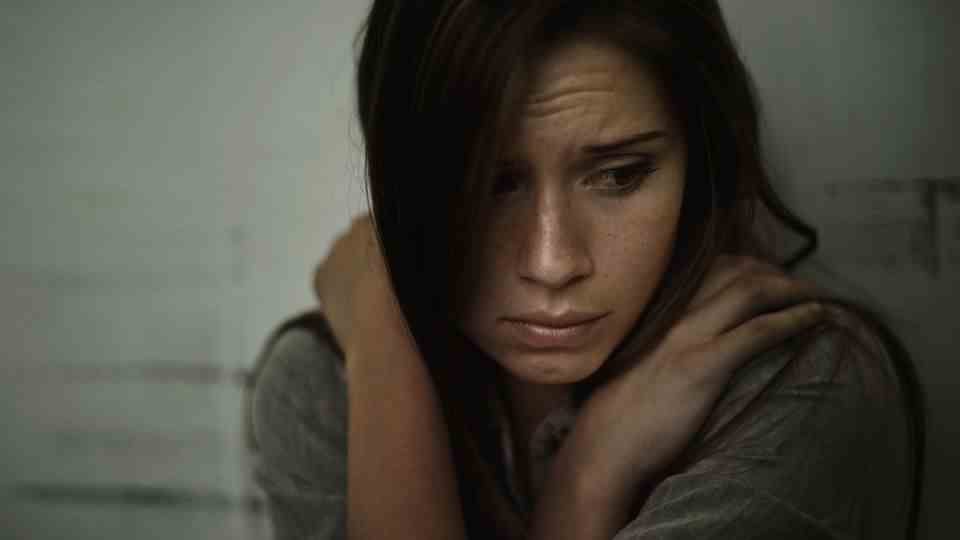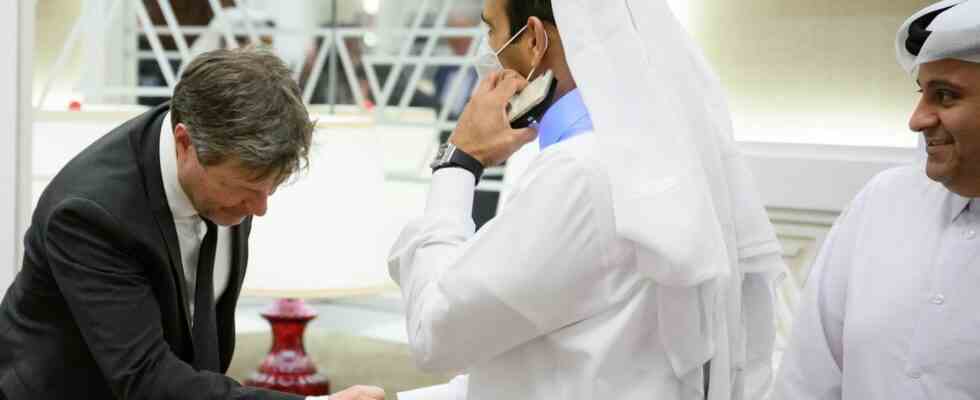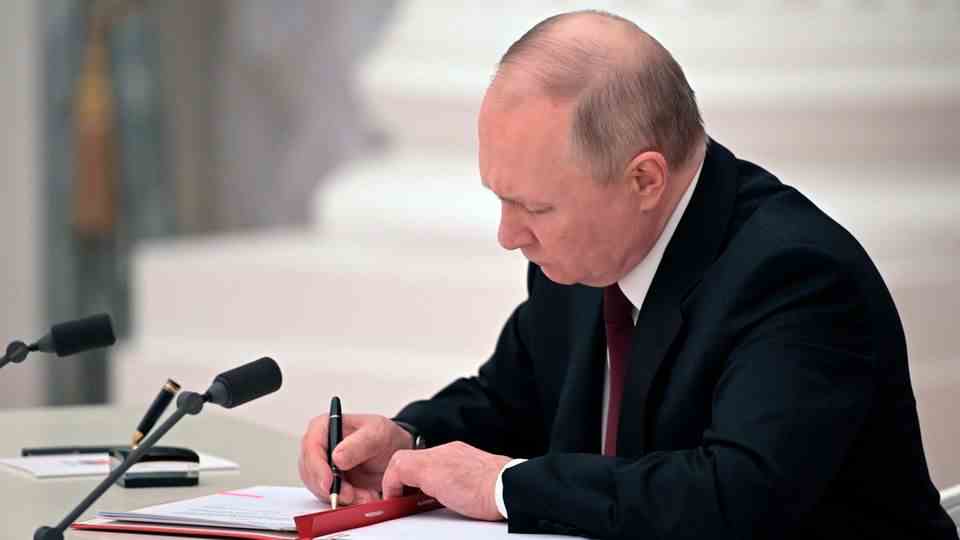opinion
Ukraine war
Gas from Putin or from Qatar: why the choice between “plague and cholera” is an opportunity for German politics
Too deep servant? Economics Minister Robert Habeck shaking hands with Qatar’s Energy Minister Saad Sharida al-Kaabi.
© Bernd von Jutrzenka / DPA
First gas from the war aggressor, now energy from human rights abusers? Is that in order? The war has taught politics and society in Germany that there is not always right or wrong. That can also be an opportunity.
“Entangled in guilt.” This is how Helmut Schmidt saw himself when, as Federal Chancellor, he had to decide during the German Autumn of 1977 whether he should give in to the murdering RAF terrorists or, alternatively, practically pass the death sentence on their hostage, the employer president at the time, Hanns-Martin Schleyer. As is well known, Schmidt remained firm, Schleyer was found dead a little later.
At the time, Schmidt found himself in a similarly serious situation to that of today’s federal government, albeit on a smaller scale. Whatever decision one makes, one is “entangled in guilt.” Right or wrong are canceled. Whatever you do, you can’t get away without blaming yourself. A little more prosaically, Foreign Minister Annalena Baerbock described the Ukraine war as a “choice between plague and cholera.”
Energy supply: Servants also in a questionable place
The Russian invasion of Ukraine has inexorably limited morality, which has recently shaped the public debate in politics and society in this country, at least in some areas. Robert Habeck would certainly have been torn apart not long ago after his rather too deep servant before the energy minister of Qatar. Only now, when everyone has realized how fatal it is to be dependent primarily on Russian gas supplies, is it dawning on most of them that there cannot always be a morally correct solution in politics, that one can sometimes find one in questionable places must make a servant. After all, sticking to Russian gas in view of the war is morally wrong, just as it would be irresponsible for a government to jeopardize the supply of its own population and economy.
Habeck calls it all “bitter”. The Green Economics Minister therefore wants his request for Qatari liquefied gas to be understood as the start of the fastest possible development towards more energy savings and more renewables. He wants to get out of the dilemma as soon and as far as possible, instead of buying gas from the war aggressor, energy from human rights abusers, out of his way of “choosing between plague and cholera”.
Ukraine war sets absolute limits on morality
At least audibly whispered about Habeck’s servants. Can you do business with Qatar, where, for example, the workers at the World Cup stadiums were treated like slaves? Of course, not all principles may and should not be thrown overboard, but the war has taught us painfully and palpably that the recently popular attitude of the “better man” has no place in politics.

Finally, the other major decisions related to the Ukraine war are also double-edged swords, although they are generally recognized as correct: the weapons that Germany is supplying to Ukraine for defense kill people, of course, but the country cannot be left alone. And the terrible events of the war actually require NATO to actively help Ukraine, but triggering a third world war is simply not the responsibility of anyone. But it also means that you are “entangled in guilt”.
Learning process valuable for future crises?
Of course, this is by no means a new finding. But in the bubble of post-war Germany, which was kept up with increasing difficulty after reunification, this was suppressed in politics and society for a long time. At the latest since the refugee crisis in 2015, however, it had to be clear that the problems of the world cannot be kept on the sidelines. Now they are available to everyone. The learning process that can now be observed, to face the inevitable realities, not to betray one’s own principles, and still to make painful decisions, could still prove to be valuable for future crises – especially in connection with climate change. Always assuming that the Ukraine war hasn’t set events in motion that will overwhelm everything.



